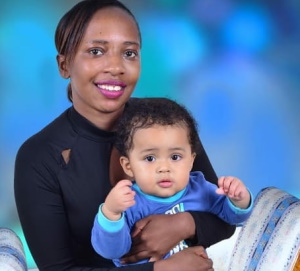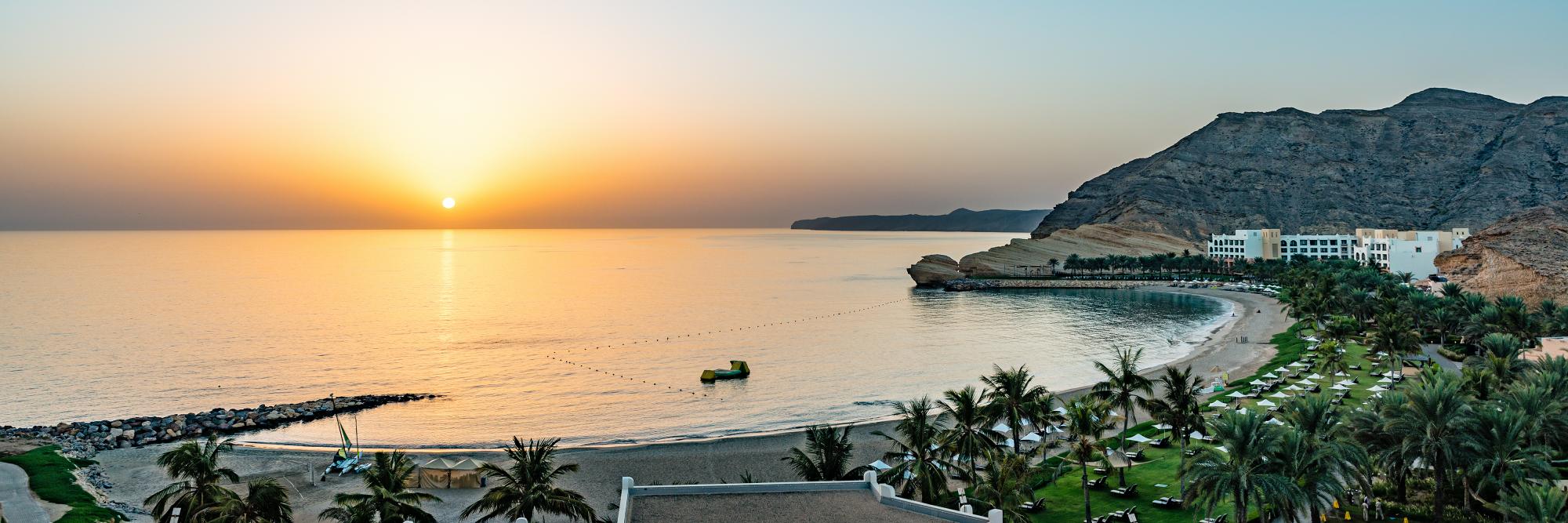Kenyan by nationality, Caroline Nduta Henry is 25 years old, married and a mother of a one-year-old daughter. She has been in Oman since November 2016 where she joined the hospitality sector in Salalah. Check out her YouTube channel to see more about Caroline’s life.
Read more about expat life in our Expat Arrivals Oman guide.
About Caroline
Q: Where are you originally from?
A: From Kenya.
Q: Where are you currently living?
A: Salalah, Oman.
Q: When did you move here?
A: In November 2016.
Q: Is this your first expat experience?
A: No, I worked in the United Arab Emirates before moving here.
Q: Did you move here alone or with a spouse/family?
A: At first, I moved alone to work at Al Baleed Resort Salalah by Anantara. Then, after two years of work, I met my husband, we got married, and I had to change my visa from a work visa to a family visa.
Q: Why did you move; what do you do?
A: After working in the UAE for two years, I was offered a transfer to be among the pre-opening team in Al Baleed Resort Salalah by Anantara; I was a spa receptionist.
Living in Salalah
Q: What do you enjoy most about Salalah? How would you rate the quality of life compared to your home country?
A: Unlike most Arabic countries, Oman has the lowest pollution. I enjoy khareef season (Arabic for autumn) when you get to see waterfalls, green mountains, great beaches and even dolphins, and many people enjoy fishing here.
Q: Any negative experiences? What do you miss most about home?
A: The variety of electronics and branded items is minimal, as shops sell almost the same items.
Q: What are the biggest adjustments you had to make when settling into expat life here? Did you experience any particular elements of culture shock?
A: The only big adjustment is the lack of reliable public transport. For me, it was easy to adjust to the culture – Kenya and Oman share similar cuisine and some Omanis speak Swahili. It feels like a home away from home.
Q: What’s the cost of living compared to home? Is there anything particularly expensive or particularly cheap in Oman?
A: With the introduction of the sin tax, beverages, alcohol, pork, cigarettes and imported food are at least double the price compared to that in my home country.
Q: How would you rate the public transport in Salalah? What is your most memorable experience of using Salalah’s transport system?
A: The public transport in Salalah is almost non-existent. People mostly use taxis, not trains, so I do not have any experience with public transport.
Q: How would you rate the healthcare in Salalah? Have you had any particularly good/bad experiences with regards to doctors and hospitals? Are there any hospitals you would recommend?
A: I highly recommend private hospitals, though the price between government and private hospitals is almost the same. I gave birth to my daughter in Badr Al Samaa Hospital and I would recommend it, they have advanced technology, and I was able to get an epidural.
Q: What are the biggest safety issues facing expats living in Salalah or Oman? Are there any areas expats should avoid?
A: Oman is a safe country and the crime rate here is almost non-existent – expats can safely walk outside.
Q: How do you rate the standard of housing in Salalah? What different options are available for expats?
A: Average. The building style in Oman is mainly villas or apartments, and you can choose according to your taste of style and affordability.
Q: Any areas or suburbs you’d recommend for expats to live in?
A: It depends if you are coming with your family or if you're single. If you are moving with a family and children, I would recommend settling in Muscat due to the variety of schools, parks and shopping centres, unlike places like Salalah which mainly has Indian and British school options. As a single person, feel free to settle in any part of the country – it’s Oman, it’s all simple.
Meeting people and making friends
Q: How tolerant are the locals of foreigners? Is there obvious discrimination against any particular groups? Have you ever experienced discrimination in Salalah?
A: The people in Oman are so friendly. An Omani will always greet you ‘marhaba’, and they share their culture with pride. I have never experienced discrimination or heard about any.
Q: Was meeting people and making friends easy? How did you go about meeting new people?
A: It was easy to meet new people in Oman, especially since I was working in hospitality. Omanis will offer to take you sightseeing and share their lifestyle with you.
Q: Have you made friends with locals, or do you mix mainly with other expats? What advice would you give to new expats looking to make friends with the locals?
A: Locals are very friendly; I have a lot of local friends. My advice is to not go out with a stranger but get to know them first.
Working in Salalah
Q: Was getting a work permit or visa a relatively easy process? Did you tackle the visa process yourself, or did you enlist the services of an immigration consultant?
A: Getting a work permit was effortless on my side, my employer did everything as, due to the labour law, an Omani must sponsor your visa. All they needed from my side was a medical certificate. They covered my visa and ticket cost.
Q: What is the economic climate in Salalah like? Do you have any tips for expats looking to find a job? Which resources did you find most useful?
A: Be aware of Omanisation. It’s getting worse day by day. Oman is working on eliminating skilled foreign workers and replacing them with locals, as Omanis will often not take unskilled work or manual labour.
It hasn’t been easy to change jobs, and expats would need a No Objection Letter from their employer. But a change in the labour law announced this month and coming into force in 2021 makes transferring jobs easier.
Q: How does the work culture differ from home? Do you have any tips for expats doing business in Salalah or Oman? Did you have any particularly difficult experiences adapting to local business culture?
A: Welcome to Oman, where an expat cleaner gets paid as low as 90 OMR (Omani rial) a month and a local gets paid OMR 400 a month for the same job at the same company. The local may miss most of their shift, leaving the underpaid expat to take over their duties...
Family and children in Salalah
Q: Are there any specific challenges you and your family experienced while adapting to life in Oman?
A: The biggest challenge is the heat: it’s impossible to do any outdoor activities, but in Salalah, during khareef season it’s very cool for at least three months.
Q: Did your children settle in easily? What were the biggest challenges for them during the move?
A: You can’t enjoy outdoor activities due to the heat, schools are very expensive for their standards, there are no theme parks for children, and even simple things such as visiting an aquarium is expensive.
Q: What are your favourite family attractions and activities in Salalah?
A: The green mountains during khareef season, the lovely white sand beaches and a desert safari.
Q: What are the schools like, any particular suggestions?
A: The schools are overpriced and the choice of school is very little. Popular schools are Indian groups of schools, Omani schools and British schools. It highly depends on the system that suits your children.
Final thoughts
Q: Is there any advice you would like to offer new expat arrivals to Salalah or Oman?
A: Firstly, make sure you get a job that you love, since it has been almost impossible to swap jobs between companies. If you resign you may have to wait for two years before coming back into the country, if you finish your contract you will have to wait for six months before you reapply to a different company. Although, as I said before, the labour laws are changing.
Secondly, schools are expensive for the standard of education provided.
Lastly, it’s your right to ask for free flights tickets after your contract ends, and your employer should provide medical insurance and accommodation. It’s against Omani labour law for employers to take your passport during your stay, so hold onto your passport tightly, as many employers don’t follow the law.
►Interviewed June 2020



